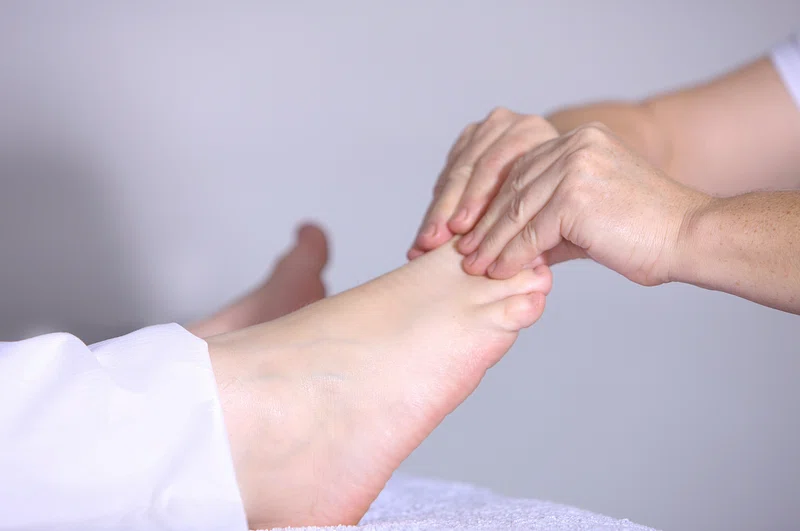Plantar warts are a common cause of discomfort, pain, and frustration. These growths, caused by the human papillomavirus (HPV), often appear on the soles of the feet and can be stubborn to treat. If you’re dealing with these bothersome warts, this guide will provide information on effective home remedies, over-the-counter treatments, and when to seek professional help and get back to feeling comfortable.
What Are Plantar Warts and How Do They Develop?
Plantar warts are small, rough growths that often appear on the soles of your feet, particularly in areas that bear pressure like the heels or balls of your feet. They are caused by the human papillomavirus (HPV), which enters the skin through tiny cuts or weak spots. These warts are generally harmless but can become painful when walking or standing, as the pressure pushes them deeper into the skin. Plantar warts are also contagious and can spread through direct contact or shared surfaces, so treating them promptly and taking steps to prevent spreading is key.
Which Over-the-Counter Treatments Work Best at Home?
Over-the-counter (OTC) treatments offer convenient and effective options for treating plantar warts at home. Here are some of the most common remedies:
- Salicylic Acid: This popular treatment works by softening the tough skin of the wart, making it easier to remove. You can find salicylic acid in liquid, gel, or patch form at most drugstores. For best results, soak your foot in warm water for 10 minutes before application.
- Freezing Kits (Cryotherapy): OTC freezing kits mimic the procedure performed by doctors. These kits contain sprays that freeze the wart, causing it to eventually fall off. Always follow the instructions carefully to avoid damaging the surrounding skin.
- Medicated Pads or Plasters: These small patches contain active ingredients like salicylic acid and are convenient to apply directly over the wart, offering targeted treatment.
Consistency is key when using over-the-counter options. Follow the product instructions and be patient, as it may take weeks for the wart to fully disappear.
Can Natural Remedies Like Apple Cider Vinegar Help Remove Warts?
Natural remedies have been used for generations to tackle skin issues like plantar warts, and some have shown promise. While these methods may not work for everyone, they can complement other treatments:
- Apple Cider Vinegar: Known for its antibacterial and antiviral properties, apple cider vinegar is a popular natural remedy. To use it, soak a cotton ball in diluted vinegar (mix equal parts vinegar and water), place it on the wart, and secure it with a bandage. Leave it on for a few hours or overnight. Be cautious, as vinegar can irritate the surrounding skin, so dilute it appropriately.
- Garlic Paste: Garlic contains allicin, a compound with antiviral properties. Crush a garlic clove into a paste, apply it to the wart, and cover with a bandage. Repeat daily for a few weeks.
- Tea Tree Oil: This essential oil has natural antiviral properties. Apply a drop directly to the wart or mix it with a carrier oil to prevent skin irritation, then cover with a bandage.
- Banana Peel: Some believe that the enzymes in banana peels can help dissolve warts. Rub the inside of a banana peel on the affected area daily or tape it over the wart overnight.
While natural remedies can be helpful, they often work slowly and may not eliminate the wart entirely. Combine these methods with OTC treatments for better results.
Consult a Specialist
While home remedies and OTC treatments can be effective for many, persistent or painful plantar warts may require professional attention. If your wart doesn’t respond to treatment after several weeks, grows larger, or begins to spread, it’s time to consult a specialist. Schedule a consultation and get back on your feet with confidence!

Leave a Reply